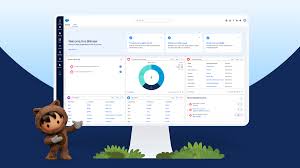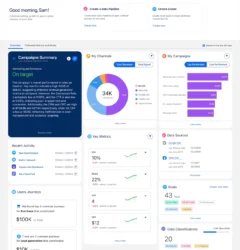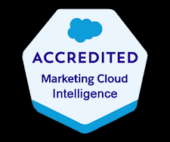Salesforce Inc. today introduced Salesforce Foundations, a new suite of features designed to help large enterprises operating across multiple industries unify their sales operations. As a prelude to Dreamforce this free Salesforce upgrade allows customers to combine data and functionality from Salesforce products in a single, new portal.
Available at no cost to all Salesforce Sales Cloud and Service Cloud users, Salesforce Foundations consolidates functionality from the company’s Sales, Service, Marketing, Commerce, and Data Cloud platforms. The goal is to create a more cohesive experience across departments, breaking down silos to enable seamless collaboration.
In addition to these core features, Salesforce Foundations offers trial-based access to a variety of third-party applications available on the AppExchange marketplace.
This initiative comes in response to a recent study revealing that 55% of Salesforce customers feel disconnected when interacting with different departments within their organization. The lack of integration between sales data and workflows in various departments has often created a fragmented customer experience.
Bringing Departments Together
Salesforce Foundations aims to eliminate these silos by providing a unified platform for all departments, ensuring a consistent view of an organization’s complete sales operations.
Foundational Features for All
The platform provides users with access to essential functionality from each of Salesforce’s key cloud products, along with free trials of top partner apps. These features are made available through a customizable user interface with a guided setup experience. As a result, features like email campaigns (previously exclusive to Sales Cloud), secure payment links (from Commerce Cloud), and targeted segmentation (Data Cloud) are now accessible to all Sales Cloud and Service Cloud users.
The main advantage of Salesforce Foundations is its ability to harmonize customer data across departments. For example, Sales Cloud users can now access data previously available only to Data Cloud users. By providing access to this unified data, Salesforce believes it can offer numerous benefits to customers.
Driving Revenue and Collaboration
One of the most significant benefits of Salesforce Foundations is its potential to drive revenue by fostering collaboration across sales, service, and marketing teams. With a unified data set, teams can gain superior insights into customer behavior. Marketing teams, for instance, will be able to track customer interactions with the service department and use this information to craft more targeted advertising campaigns.
Sales teams will also benefit from the ability to turn quotes into cash more quickly. They can now access secure payment links, a feature previously exclusive to Commerce Cloud, allowing them to bill customers directly without waiting for instructions from the commerce department.
Service teams, in turn, can assist marketing efforts by accessing sales quoting tools and secure payment links, enabling them to upsell products and services more effectively.
AI and Partner Integration
Salesforce Foundations also supports artificial intelligence applications by grounding them in more contextualized customer data. For example, marketing teams can use AI to create more targeted segmentation lists based on service case histories or sales pipeline stages, data that was previously unavailable to them.
In recent years, Salesforce has been actively transforming the data architecture of its applications, with many now built on the Salesforce Data Cloud’s metadata-driven foundation. This allows Salesforce Data Cloud to house not only the data but also the context (metadata) that surrounds it. As a result, businesses can more easily establish relationships between data tied to the same customer or user across various software solutions.
These software solutions primarily include Salesforce products like Sales Cloud and Service Cloud, but they also extend to third-party applications that integrate with the Data Cloud. Now, with the introduction of Salesforce Foundations, customers can visualize this data within a unified portal, apply filters, and even trigger actions such as upsell opportunities.
To further enhance productivity, Salesforce is offering free trials of third-party applications from the AppExchange, including Webex by Cisco, DocuSign, and RingCentral. These “launch partner apps” are designed to improve collaboration, streamline document management, and lower operational costs for customers.












